Contrary to what pharmaceutical companies would have you believe, you can lose weight without Ozempic, even if you have Hashimoto’s.
Is it difficult and does it take longer if you have a thyroid problem? Sure, but it’s definitely not impossible.
The reality is that good old-fashioned treatments like the right diet, exercise, supplements, and the right thyroid medication can work miracles for thyroid patients.
Today I’m going to walk you through how Melanie was able to lose over 50 pounds over the course of about 6 months with the use of natural treatments because if she can do it, you can too.
Let’s jump in:
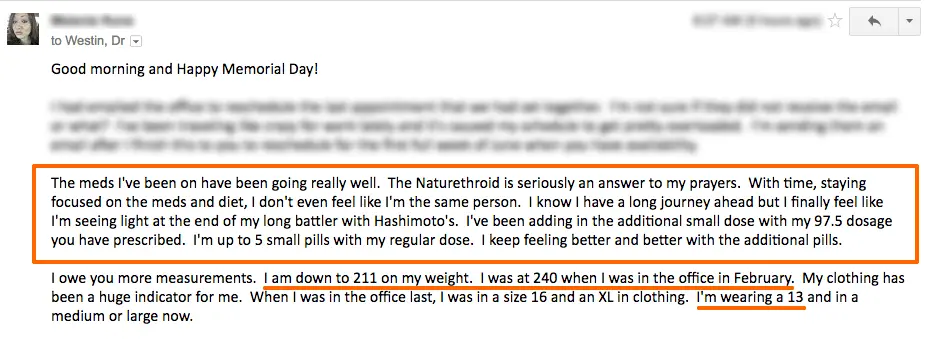
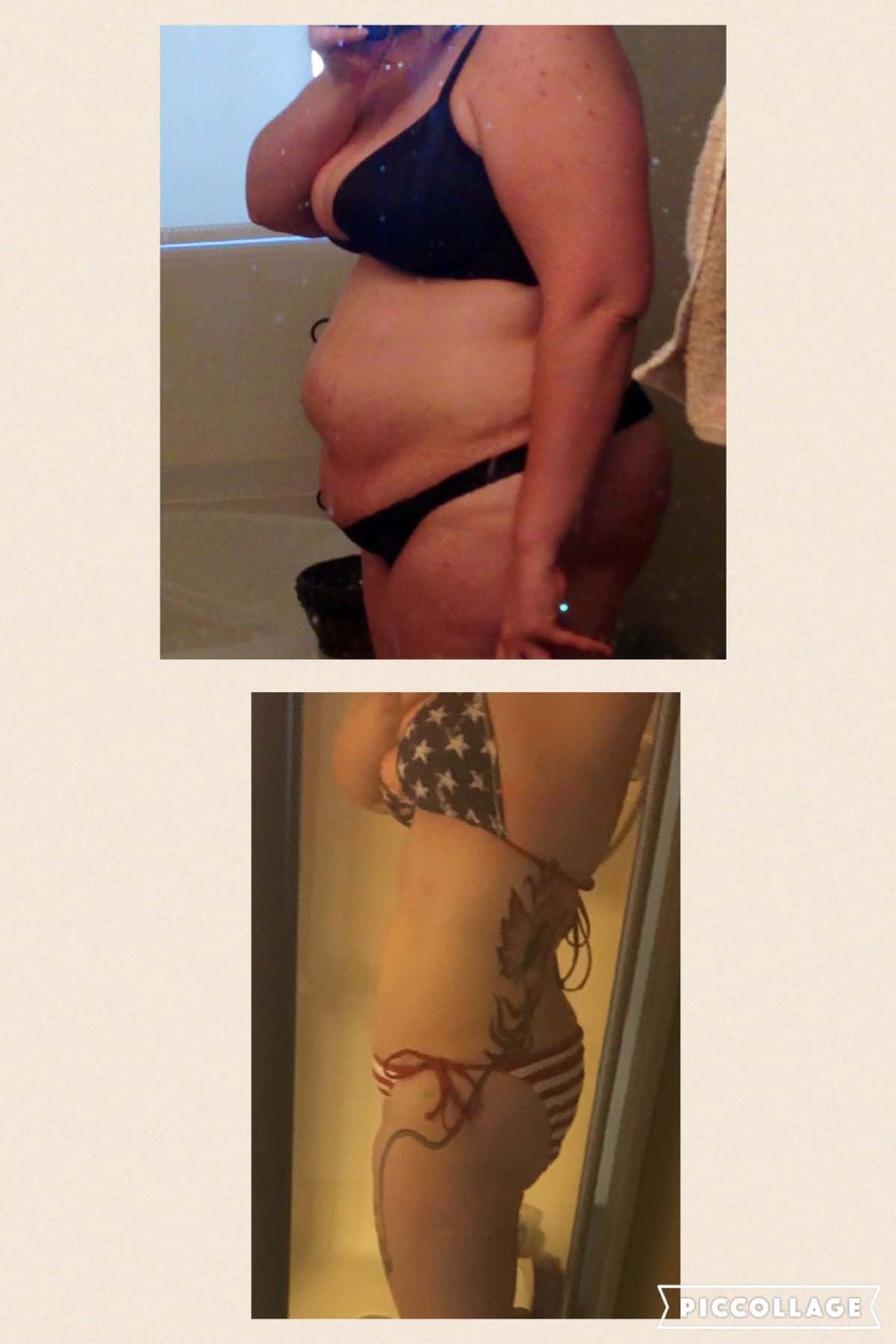

Hashimoto’s Weight Loss Case Study
Here’s what you need to know about her:
This patient has a family history of thyroid problems (all of which were undertreated or misdiagnosed), and ever since she was a child she had issues with weight, fatigue, and decreased energy.
At an early age, she underwent radioactive iodine ablation, but 30% of her thyroid remained functional as estimated by her doctors at that time.
As a result of the ablation and her almost normal thyroid lab values, she was placed on a low dose of levothyroxine and felt terrible for about 20 years.
Over this time period, she gained weight and never saw symptomatic improvement despite taking levothyroxine faithfully so she eventually stopped taking her thyroid medication altogether.
This was not a good idea (as we will soon discuss) because she was operating with only about 30% function from her thyroid gland.
In other words, the 30% of her remaining thyroid gland was trying to keep up with the permanently damaged 70% which led to all of these problems.
She was kicked around from doctor to doctor until she was at her highest weight of 270 pounds.
Not satisfied with this result, and like a true champion, she took matters into her own hands and was able to lose 30 pounds by changing her diet and adding in exercise despite feeling exhausted 24/7.
She was able to do this with a keto-type diet but eventually hit a plateau and was unable to lose any further weight around 250 pounds.
Even though she was able to lose some weight, she still felt symptomatic from her thyroid and her symptoms remained (remember she was not on thyroid medication during this time).
Optimal vs Normal Thyroid Lab Tests: Why she was undertreated for years
The most interesting part of her story is that she was only ever treated with a low dose of levothyroxine despite seeking care from multiple endocrinologists and primary care physicians.
She was always told her lab tests were “normal” but after her insistence of stating she didn’t feel normal, she was finally given some thyroid medication even though it didn’t make a difference.
And this is where things get very interesting.
One of the primary reasons that she was never treated correctly is that her doctors were most likely using the “standard” reference range for determining if her thyroid was functioning optimally.
What they were failing to appreciate was her body’s remarkable ability to maintain serum levels of thyroid hormone despite missing 70% of her thyroid gland because they were focusing on standard reference ranges and not optimal reference ranges.
When you take a closer look at her thyroid lab tests, you can see some obvious issues:
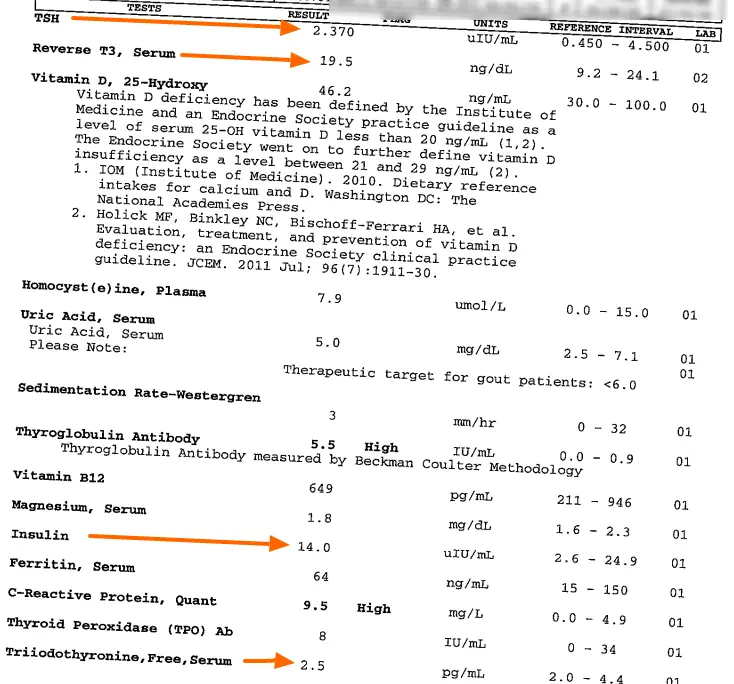
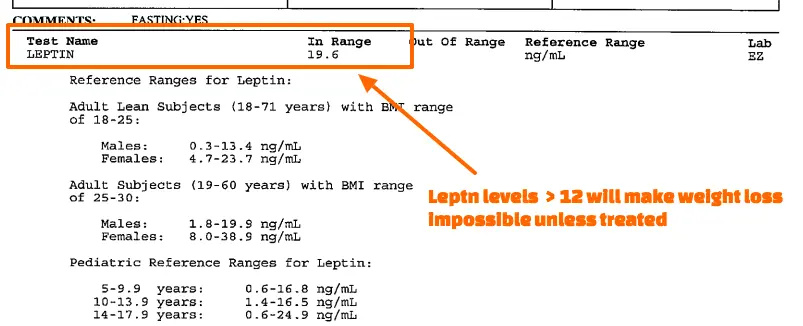
As you can see the majority of her lab tests do fall within the “normal” range with the exception of her CRP and thyroglobulin antibody levels.
But let’s go over the rest of the labs to help you understand the difference between “optimal” and “normal” and why she had great results when we finally interpreted these lab results correctly.
Her list of abnormal lab results includes:
- Suboptimal TSH: When not on thyroid medication optimal TSH levels should be < 2. This range is based both on anecdotal evidence as well as some newer studies (you can read more about why TSH levels can be inaccurate here).
- High Reverse T3: Indicating poor thyroid conversion. Reverse T3 should generally be < 15 for optimal thyroid function.
- Elevated thyroglobulin antibodies: Indicating a component of autoimmune thyroiditis contributing to poor thyroid function. You can read more about how to lower antibody levels here.
- High fasting insulin: Fasting insulin should be < 5. High levels contribute to weight gain and weight loss resistance and may make reverse T3 levels higher.
- Elevated CRP: Indicating inflammation is present in the body, optimal levels should be as low as possible.
- High serum leptin levels: High levels make TSH less accurate, promote high reverse T3 levels, and also contribute to weight loss resistance.
Compare this evaluation to the previous notion that she was completely “normal”.
Does she sound or look “normal” to you?
Definitely not, and you may find yourself in this same situation.
Using these functional and optimal reference ranges, it’s easy to see that she is in fact NOT normal and that she has multiple hormone abnormalities contributing to both her thyroid symptoms and inability to lose a significant amount of weight despite eating a healthy diet.
So what is happening in her body and how does this explain her symptoms?
It’s hard to know for sure but based on what we are seeing here the likely answer is tissue-level hypothyroidism.
Tissue level hypothyroidism refers to a state where there can be adequate thyroid hormone in the body and bloodstream but that thyroid hormone is not responsive at the cellular level.
It’s also sometimes referred to as thyroid resistance (although this would be a form of acquired thyroid resistance and not a genetic version of thyroid resistance).
In this specific situation, thyroid medication was definitely the answer.
We know that based on her labs and her history of radioactive iodine ablation.
Even though she had some remaining thyroid function (approximately 30%) that tissue was not able to keep up with the demands of her body.
As a result, she experienced hypothyroid symptoms as well as weight gain.
Putting her on thyroid medication was definitely the answer but, unfortunately, her doctors used a low dose of the wrong type of thyroid medication.
Because her body had a hard time converting the T4 from levothyroxine into T3, she was never really able to meet the demand of her tissues or resolve her hypothyroid symptoms.
This persistent hypothyroid state then set the stage for her to develop other issues such as leptin resistance and insulin resistance as seen in her lab tests.
In a vicious cycle, these hormone imbalances then made her thyroid conversion worse and contributed to her high reverse T3 levels.
This scenario is bad by itself but it doesn’t stop there.
We also know that she has Hashimoto’s thyroiditis (she was diagnosed with this a long time ago) and even though she was placed on levothyroxine to try and treat her hypothyroidism, the underlying cause of her Hashimoto’s was never addressed.
We would then expect that over time she would see more damage to the remaining 30% of her thyroid gland tissue due to inflammation and destruction from her own immune system (the hallmark of Hashimoto’s).
This adds fuel to the fire mentioned above.
Ultimately, after years of struggling, she presented with these lab results which are what you are seeing now.
One final point worth mentioning is how reverse T3 impacts the function of thyroid hormone.
When we discuss serum levels of thyroid hormone we are more concerned about how much thyroid hormone is getting into the cells and not necessarily how much thyroid hormone is floating around in the serum.
“Normal” levels of thyroid in the blood do NOT mean that the tissues are getting enough thyroid hormone and this was certainly the case in this patient.
Her serum levels of free T3 and free T4 remained relatively preserved but she remained quite symptomatic despite this.
For this reason, the most sensitive measure of thyroid function in this patient is the relationship between free T3 and reverse T3, otherwise known as the free t3 to reverse T3 ratio.
And this patient is just screaming that she is hypothyroid with a ratio of 0.128!
The secret to diagnosing and treating many hypothyroid patients is this ratio because it will identify most hypothyroid patients when all other lab tests are “normal”.
This ratio can be helpful in cases of “normal” thyroid lab tests because it starts to become abnormal before any other thyroid lab tests make it outside of the normal reference range.
Treatment Plan + How to Approach a Patient Like This
The most important part of this patient’s evaluation is her management.
What I mean is how she was treated.
We can wax philosophical about her history, what is going on in her body, how she got there, and so on, for a long time.
But that doesn’t do us any good if we don’t fix it!
Many patients believe that if they can get all the “right” tests their doctor will finally treat them appropriately.
This rarely happens.
If your doctor isn’t willing to order the right thyroid blood tests then it likely means they don’t really know their purpose or how to interpret them.
And when it comes to getting results like this patient you really need to find someone who is willing to not only order and interpret the right tests but also provide appropriate treatment.
This means you need a thyroid-literate doctor.
If you are struggling to find one, you can use this resource to help.
So how do you approach a patient like this with multiple problems who is severely undertreated?
You have to take a comprehensive approach that includes treating the following areas:
- Hormones and prescription medications
- Supplements and botanicals
- Inflammation and autoimmunity
- Detoxification
- Diet and exercise (lifestyle factors)
- Stress Reduction
If these areas are not all addressed at some point then you’re not really treating the problem.
And this is a REALLY important point:
Make sure you don’t get what I call “thyroid tunnel vision”.
This is the idea that every problem that exists in your body is related to your thyroid and the solution is to simply change/increase/swap thyroid medication until you see a resolution.
Patients tend to fall into this category especially when they have extra weight to lose.
They wrongly assume that increasing their thyroid medication will result in significant weight loss.
At most changing or adding in thyroid medication will result in an average 5-10 pound weight loss.
If you are like many hypothyroid patients then you probably have more weight to lose than just an extra 5-10 pounds.
But I can assure you that the extra weight is almost always related to other factors.
Let me use this patient as an example to help illustrate this point:
Over a 9-month period of time, this patient experienced the weight loss you are seeing here as well as almost complete resolution in her low thyroid symptoms.
But what is interesting is that her hypothyroid symptoms were almost completely gone within the first 3 months of her treatment, but she only lost 20ish pounds or so during that time.
The remainder of her weight loss came in months 3 through 9 and without changing her thyroid medication.
She was able to lose this weight because during those months we focused on the other hormone imbalances that were a result of decades of low thyroid function but not directly due to her low thyroid state.
Yes, her initial low thyroid state set the stage for the weight gain but it wasn’t solely responsible for it which is why optifmizing her dose of thyroid medication resolved her symptoms but not all of her extra weight.
In this way optimizing your thyroid medication dose is necessary to lose weight but will not cause all of the weight itself.
And this is an important distinction that you should be aware of if you are trying to lose weight.
- Bottom line: When searching for a provider to help with your Hashimoto’s/Hypothyroidism make sure your provider also understands hormone imbalances that contribute to and potentiate weight gain and weight loss resistance.
T4 vs NDT & Reverse T3
*Note: this patient had success with Nature-throid, which hasn’t been available for some time, but you can always swap out its use for NP Thyroid or Armour Thyroid.
Why did this patient respond so well to Nature-throid when she didn’t respond to levothyroxine previously?
A big part of the reason has to do with conversion mechanics between T4-only medications and T4/T3 combination medications.
T4-only medications (like levothyroxine, Synthroid, and Tirosint) can work for some people but fall short in patients who have high levels of inflammation or insulin/leptin resistance.
One of the primary reasons for this is that the body converts T4 into either T3 (active thyroid hormone) or reverse T3 (inactive thyroid metabolite) and this conversion process is influenced by factors like inflammation.
If the body is in a state of inflammation then providing more T4 (in the form of thyroid medication) is like adding fuel to the fire, your body will take the T4 and turn it right into reverse T3 which blocks the action of T3.
You can bypass this problem by taking thyroid medications that contain T3 thyroid hormone.

Natural desiccated thyroid preparations contain a combination of T4 and T3 together. Each grain of Nature-throid contains approximately 38 mcg of T4 and 9 mcg of T3.
The benefit of adding T3 to T4 dosing is that the T3 can directly bypass the conversion pathway and has a direct action on the nuclear receptors of cells.
This means you don’t have to worry (*too much) about the conversion process because providing T3 thyroid hormone bypasses the necessity of thyroid conversion.
*This isn’t entirely true for everyone, though, because NDT formulations still contain more T4 than T3.
Generally speaking, the more inflammation, autoimmunity, stress, and hormone imbalances a person has the better the more likely they will need T3 thyroid medication.
Hopefully, this is making sense!
Beyond using the right type of medication, we still have to worry about the dose.
You can take the right thyroid medication but the wrong dose and not get any of the desired effects you are looking for.
This can be solved with self-titration.
Nature-throid Dosing and Self-Titration – How to Dose Your Medication
This patient was able to find her dose of Nature-throid by utilizing what is called self-titration.
If you’ve never heard of self-titration let me explain:
This is the idea of slowly but steadily increasing your dose every 10-14 days (depending on the patient) based on a combination of symptoms, lab results, and other factors (like resting heart rate/body temperature).
One major benefit of self-titration is that it allows for a slow and steady increase in thyroid hormone over weeks to months which then allows the body to adapt to thyroid hormone to minimize negative side effects that can come from using T3 medication.
While self-titrating it is a great idea to keep track of both basal body temperature and resting heart rate to help monitor the effectiveness of your thyroid dosing.
Monitoring these variables also helps to prevent accidental overdose which is something you definitely don’t want!
The patient in this case study titrated her dose up to a total of 2.5-3 grains of Nature-throid which is around 195mg.
Even though she did great on just pure Nature-throid, some patients need the additional T3 (Cytomel, liothyronine, or SR T3) along with their NDT.
As I mentioned previously, as she increased her dose many of her hypothyroid symptoms disappeared over the first 3 months or so.
Finding the Best Diet: AIP vs Nutritional Ketosis vs Other Diets
Diet is critical to treating and reversing Hashimoto’s and if used correctly it can also directly impact insulin and leptin levels.
What you need to realize, though, is that changing diet is typically not enough to normalize weight by itself.
Just like optimizing your thyroid medication, changing your diet definitely can help, but it must be accompanied by other therapies if you want to lose a significant amount of weight.
Many thyroid patients will lose some weight while trying various types of diets (usually in the range of 5-10 pounds) but this weight never stays off and they typically don’t reach whatever goal they are shooting for.
But this doesn’t mean diet isn’t important if you want to lose weight, the opposite is true.
I’ve written about the various types of diets you can use to help reduce antibodies and inflammation here which I would recommend checking out if you haven’t already.
In this particular patient, I started her on the autoimmune protocol (or AIP diet).
I generally don’t recommend this type of restrictive diet for most thyroid patients but this case is unique in that the patient had more than just one autoimmune disease (Hashimoto’s).
She also suffered from another autoimmune condition known as idiopathic thrombocytopenic purpura (1).
For this reason, I started her on the AIP diet and she did have a favorable response with a reduction of inflammation, an improvement in her platelet levels (impacted by her ITP), and a resolution in her thyroid symptoms.
While the AIP diet was effective in this case, it’s not necessary that everyone use it for Hashimoto’s or for weight loss.
In fact, it’s not even my preferred diet for thyroid patients (which you can find here if you’re interested).
It’s worth noting that prior to working with me, she had tried the ketogenic diet with minor success.
But, for the reasons I’ve mentioned in previous articles, low-carb diets like keto and carnivore may cause more harm than good for thyroid patients.
Using LDN for Autoimmunity and Inflammation
LDN, also known as low-dose naltrexone, is another tool that was used.
It was prescribed for several reasons:
- The fact that she had a history of multiple autoimmune diseases (both Hashimoto’s and ITP)
- Her joint pain
- Her insulin resistance
- Her high inflammatory levels
- Her issues with weight
She’s definitely a slam-dunk candidate as far as patients with Hashimoto’s go for using this off-label medication.
LDN can act as an immune modulator and help to reduce inflammation in some patients with autoimmune diseases.
It doesn’t work in every patient but I’ve found it to be particularly helpful in patients with autoimmune disease and chronic pain/chronic joint pain.
Studies have shown that LDN can be useful in various autoimmune conditions ranging from multiple sclerosis (2) to fibromyalgia (3).
In low doses, naltrexone may help to regulate immune function and balance multiple different neurotransmitters (4) which translates to symptomatic benefits in many patients.
LDN can also be used as a novel anti-inflammatory agent (5) which may help promote thyroid conversion and thyroid function overall.
In addition to all of these other benefits, naltrexone can help promote weight loss through hypothalamic changes (6) which mediate body set point and appetite triggers.
It should be fairly obvious why she was prescribed LDN because she fits just about every box you can in terms of potential benefits.
At one point during her therapy, she attempted to take herself off of the LDN and noticed a flare-up of chronic pain and joint inflammation, due to this she was placed back on the medication and has been on it since.
The Right Supplements to Help Thyroid Function
I can’t remember a single time that I treated a thyroid patient without recommending several different supplements.
Yes, they do add to the cost, but it’s my experience that they accelerate how quickly thyroid patients feel better.
And this situation was no different.
In this specific case, this patient needed and did well on the following supplements (she has been on various supplements through the 9 months of treatment but these have remained consistent):
- Vitamin B12 injections – For vitamin B12 deficiency (learn more about why B12 shots are better for patients with Hypothyroidism and Hashimoto’s here).
- Zinc + selenium – Zinc and selenium act to lower inflammation, balance immune regulation, and promote T4 to T3 conversion (helpful in patients with high reverse T3).
- Adrenal support – Cortisol dysregulation is common among patients with hypothyroidism and adrenal function should be treated along with thyroid hormone replacement.
- Probiotics – Decreased motility of the GI tract is common among hypothyroid patients due to thyroid action on peristalsis, GI dysfunction should be a cornerstone of treatment.
- Liquid Vitamin D + K2 drops – To replace low Vitamin D and to promote immune function. They can be used with or without vitamin K2.
Detoxing Endocrine Disrupting Chemicals
Another key to her success was spending some time on detoxification.
A lot of people are accustomed to thinking about detoxification as some sort of woo-woo buzzword that doesn’t mean anything and is only used by scammers.
The truth is that every single human being has built-in detoxification systems in the body to get rid of things we don’t want or need.
Sweat, stool, urine, and breath are the 4 biggest but your body can also eliminate toxins directly through the skin as well.
When it comes to thyroid dysfunction, the thing you should be most worried about is endocrine-disrupting chemicals.
These are chemicals, found in plastics, on receipts, liners of food cans, toys, cosmetics, etc., that are known to directly interfere with thyroid function at the cellular level.
Endocrine-disrupting chemicals, or EDCs for short, are everywhere nowadays, and it’s almost impossible to avoid them.
What’s worse is that some of them are fat-soluble and hide away in your fat cells (7) if they aren’t eliminated quickly enough.
Because they can be hidden away in your fat cells, they can be re-released into circulation as you start to lose weight.
Sometimes this re-release can impair your weight loss efforts and lead to plateaus unless they are actively removed or detoxed from your body.
Not everyone has to put a lot of energy into detoxification therapies, but there are some patients who benefit tremendously from doing so.
This patient was one of those.
She used weekly FAR IR sauna therapy in addition to high-intensity strength training and high-intensity aerobic interval training to promote sweating and toxin elimination.
Sauna therapy combined with this type of exercise promotes hormone balance, more weight loss, and helps eliminate waste through sweating.
Recap of Treatment, Therapies, & Expectations
Thyroid patients who are doing everything correctly should expect a steady 5 to 10 pounds of weight loss each and every month.
There will be some fluctuations in weight loss, though, because weight loss plateaus are not uncommon.
So even though your average weight loss will be 5 to 10 pounds per month, that number can vary slightly.
Many patients nowadays are looking for quick fixes or rapid weight loss.
They want to be able to lose 20 pounds in 1 month or less and believe that if something doesn’t work this rapidly it must not work at all.
This is the exact opposite mindset you want to have when it comes to weight loss.
Weight gain is a slow and steady process (usually) and weight loss is the exact same.
As long as you stay dedicated and consistent with your treatments, you will eventually hit your target weight goal over a period of time.
On average, you should expect it to take somewhere around 6 to 12 months depending on how much weight you have to lose.
To give you a better idea of what this looks like, you can check out the results of this patient over time.
Let’s recap the initial treatment:
| Medications | Supplements | Diet | Detox |
|---|---|---|---|
| Nature-throid | Adrenal Support | AIP | Sauna |
| LDN | Zinc | Ketosis | HIST |
| Selenium | |||
| Vitamin B12 | |||
| Probiotic |
Her results after 3 months included:
30-pound weight loss, 27 inches lost, 80% reduction in symptoms, improvement in hormonal balance by blood tests.
After getting her dose of thyroid medication optimized, we then worked on other hormone imbalances including insulin resistance, low testosterone, and weight loss resistance.
You can see an image of those labs below:

From month 3 to 9 she lost a fairly steady 5-10 pounds per month.
You can see her emails to me including her measurements and results below:
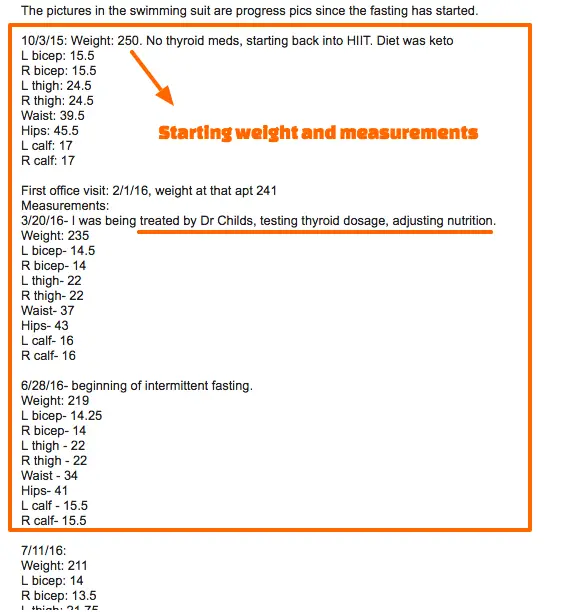
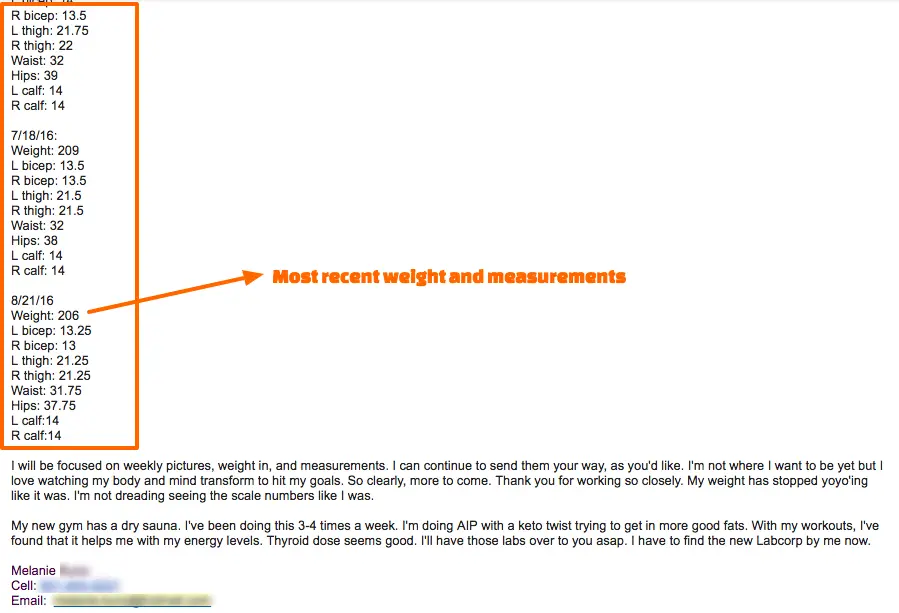
Update #2, 9-month results:
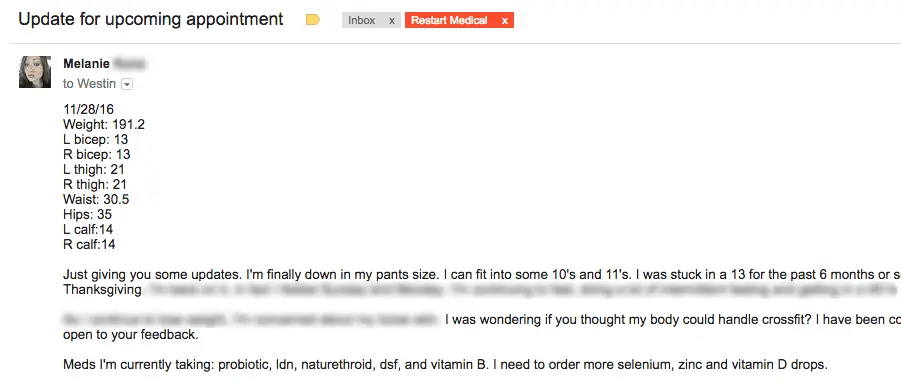
Final Thoughts
Why is it that so many thyroid patients continue to gain weight despite doing what they think is everything “right”?
To put it bluntly, they aren’t doing everything right.
But if you take a similar approach as Melanie, you can get the same results she did.
Now I want to hear from you:
Did anything in this case study surprise you?
Did it all make sense?
Do you see any similarities in your own personal journey?
Are you also struggling to lose weight despite changing up your thyroid medication or changing your diet?
Do you have any questions about this case study?
Leave your questions or comments below!
Scientific References
#1. https://www.mayoclinic.org/diseases-conditions/idiopathic-thrombocytopenic-purpura/symptoms-causes/syc-20352325
#2. https://www.ncbi.nlm.nih.gov/pubmed/21256121
#3. https://www.ncbi.nlm.nih.gov/pmc/articles/PMC3962576/
#4. https://www.ncbi.nlm.nih.gov/pubmed/19041189
#5. https://www.ncbi.nlm.nih.gov/pmc/articles/PMC3962576/
#6. https://www.ncbi.nlm.nih.gov/pmc/articles/PMC3138366/
#7. https://www.ncbi.nlm.nih.gov/pmc/articles/PMC2726844/
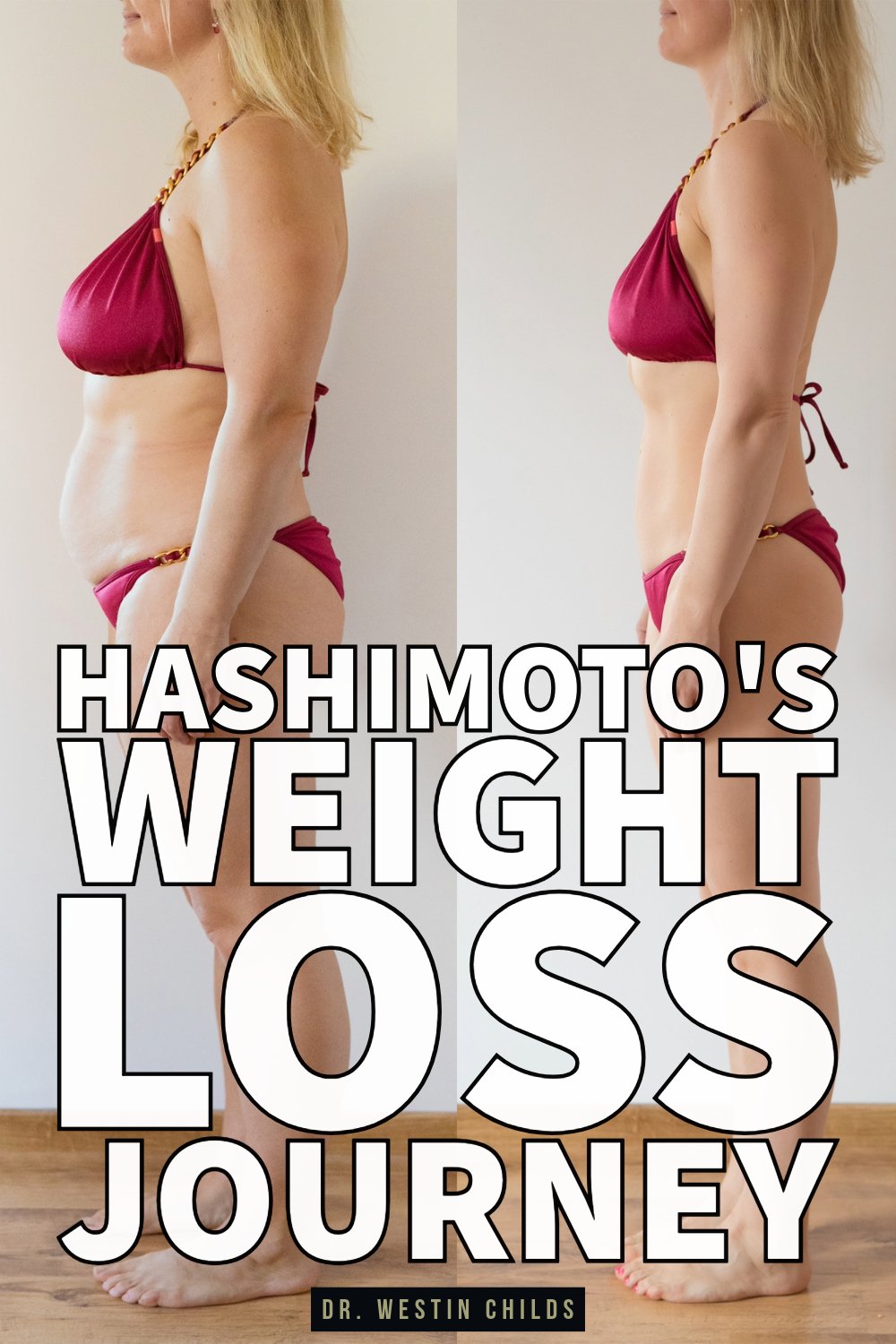
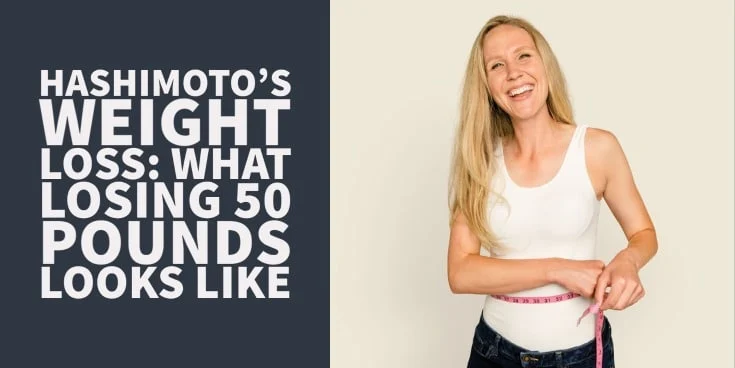

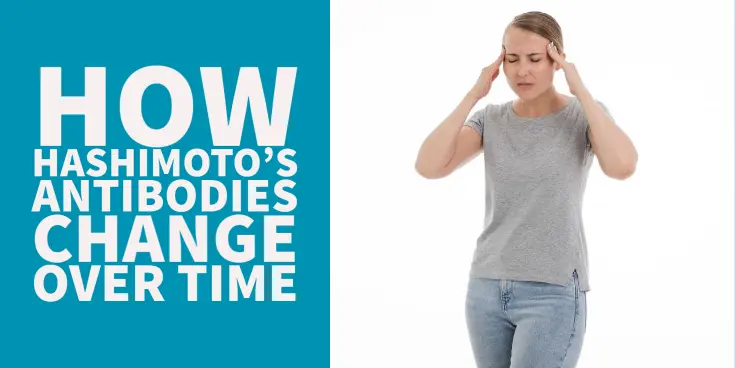
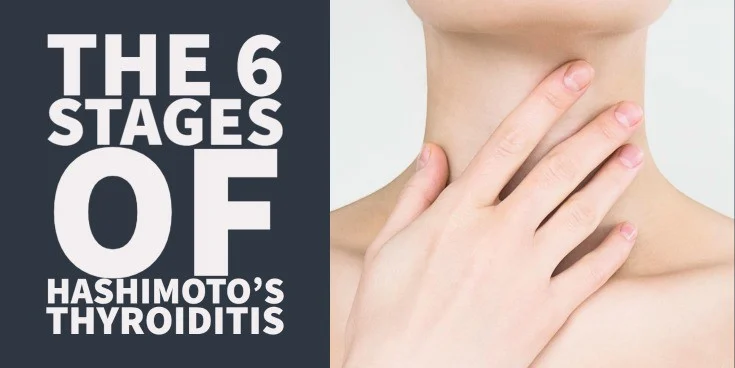
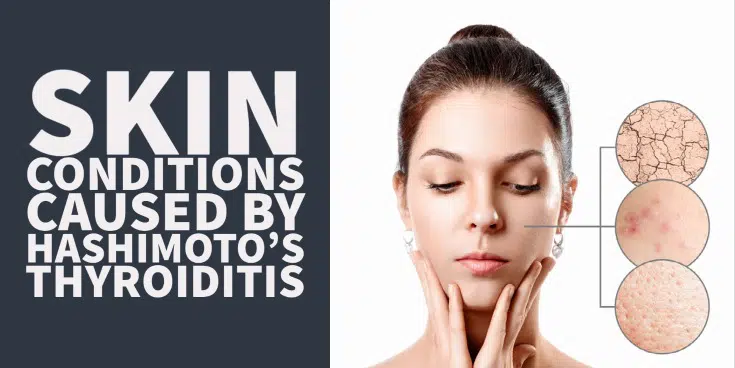
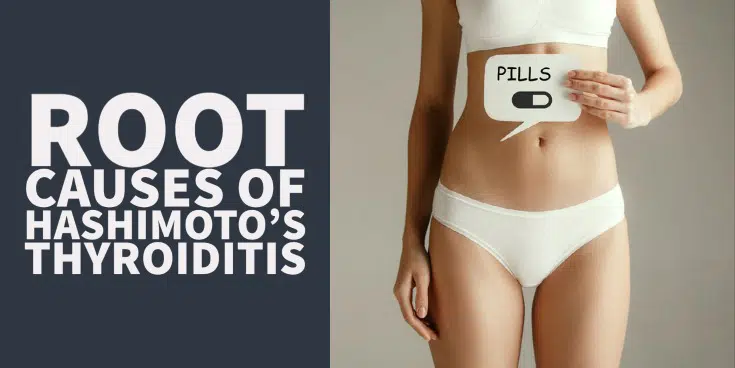


I have been reading about bone broth fasting as well – I have both Hashimoto and Celiac – I am determined to start feeling better.
Hey Kelly,
I am a huge fan of fasting. I just don’t recommend it to Hashimoto and hypothyroid patients until they are on a good dose of thyroid medication and their adrenals have been addressed. I have a set of different fasting protocols I use, bone broth fasting is one of them – but really you can do it many different ways. Fasting in general is great for gut health (whether you add bone broths or not).
What cause the high C-Reactive protein ? And is Eligin (new prescription of B-12 in pill form ) any good . Can you suggest a good B-12 supplment without having to take shot ?
Hey Jo,
CRP is a non specific inflammatory marker. It indicates stress and inflammation somewhere in the body. CRP is useful in that you can monitor the response to treatment, as you treat the problem CRP should go down.
I usually don’t recommend oral B12 supplements. Eligin is 1,000mcg of cyanocobalamin (a pretty low dose to be honest). I prefer to use 5,000mcg of methylcobalamin every 7 days on my patients, because thyroid hormone helps with B12 absorption through HCL – and since most people are undertreated, they also have B12 deficiency. If you can’t get IM injections of B12 then you can try this supplement: http://amzn.to/1U8XzE9
Use sublingual methylated B12. It bypasses the GI, going to directly into bloodstream.
Hi Helene,
In theory, yes, but in practice, it doesn’t always work that way. There are still plenty of thyroid patients who notice huge improvements when switching from sublingual B12 to B12 injections. I’m not convinced sublingual B12 is that much better compared to B12 capsules.
My father has I T P. It’s a terrible disease
Hey Susan,
I agree, some people definitely have it worse than others.
What do you recommend for low iron and ferritin in regards to supplements.Scheduled for an iron transfusion Friday and the iron pills make me nauseated and constipated.
Hey Tammy,
I have an entire post about iron deficiency here: http://www.restartmed.com/hypothyroidism-iron-deficiency/
I recommend liquid iron for most patients: http://amzn.to/22uO7Bf
Liquid iron shouldn’t cause constipation or nausea.
I’ve done the AIP and lost 40 lbs. But just recently I switched from .75 mcg of Levothyroxine to 1 grain of Naurethroid. I started with 1/2 grain. But in your blog you note the doses of Naturethroid in mg’s so I’m confused. Also since the switch I don’t feel better I feel worse. I’m sure it has something to do with the dose of Naturethroid I’m on now maybe it needs to be increased. It’s too long and complicated to type out my last labs before switching but my TSH was 2.50 and my T3 was on the low side.
Hey Paula,
1 grain of naturethroid = 65mg of naturethroid = ~38mcg of T4 and 9mcg of T3. Compare that dose to your 75mcg of T4 and you can see why you probably feel worse. Most doctors believe that T3 is 4x stronger than T4, which leads to underdosing when converting from T4 to NDT. I disagree with this based off of my own experience, but you are kind of at the mercy of whatever Doctor is treating you.
I would also point out that I have a handful of patients that do better on T4 over NDT. I suspect there are just some super converters out there and they do great on T4 medication alone. You may be one of these or you may just be simply under dosed – hard to say.
Thank yiu so much Dr. Childs! I will pass this along to my health practitioner!
Is there a way to tell if you’ll do better on T4 than NDT through bloodwork? I feel Naturethroid caused me to gain weight. I’ve been on it for about 3 years. First 2 grains a day. Now I’m on 97.5 mg + 5 mg cytomel.
Hey Jill,
Sort of – the higher the reverse T3, generally the better someone will do on T3 medications like NDT.
I wish I could find a Dr who would listen to any of this! Anything I come into the office and tell him/them they brush it off give me my 150 levothyroxine script and send me on my way.. And I leave every Dr visit in tears and feeling hopeless. Even tho I’m 27 skin is a mess, hair rapidly thinning and weight out of control despite my struck diet and exercise, my labs are “normal” so they just tell me if power walking isn’t working I should start running and diet better! This is with horrible knee problems and sciatica.
Hey Ashley,
You aren’t alone, that’s for sure. That’s also why I don’t recommend seeking care in the conventional medical system – all of the doctors practice the exact same, AKA the ‘standard of care’. They have no reason to practice otherwise because it puts them at increased risk, so they will only ever prescribe synthroid and treat based off of the TSH.
Hello
I read your articles with great interest. I have a question please. I was diagnosed with Hashimotos 20 years ago. I have no thyroid function; the disease had distroyed my thyroid by the time I was diagnosed. I take 125mg of levothyroxine per day. I weigh 62kilos. I’m 1.62m tall. I exercise by walking my dog for between 1-2 hours per day and I’ an active gardener. I’m keen to know how your recommended diet can help my general health. I suffer from intermittent IBS and try to follow a low gluten diet. I’d appreciate your comments very much. By the way I live in UK.
Hey Jane,
I don’t recommend this diet to many patients, it’s very restrictive and I don’t think it’s sustainable long term. Her weight loss came from her hormone balancing. I wouldn’t recommend you try this diet for weight loss (many have in the past and it doesn’t work unless you are on the right type and dose of thyroid medication).
There are many options out there for IBS + Hashimoto’s.
Dr. Westin,
I’ve noticed a significant amount of intestinal/gut issues mentioned in articles you reference/recommend. I’m curious if there are no intestinal/gut issues present or any history of such issues in a Hypo/Hashimoto sufferer could following one of the recommend eating plans (or food suggestions)and altering it (eating items on the “not allowed” list because of other medical issues related to autoimmune problems) cause issues to develop?
thanks!
Hey Cindy,
Gut issues are very common in undertreated hypothyroid patients (and patients with hashimoto’s) because thyroid hormone helps with intestinal peristalsis. To answer your question, yes you may not to be that restrictive if you don’t have gut issues personally. In general I’m not a fan of very restrictive diets because they aren’t sustainable in the long term, and sometimes transitioning off of them is difficult. It is highly individual to the patient.
Dr. Childs Changed My life!
I’m his patient since January 2016 and I’m in the best shape physically and mentally ever, we still working
With my hormones but since I started his program
And dietary protocol for my hashimoto’s my body looks different and the best .. I’m almost symptoms free.
Thank you Dr. Childs
P.S I Tryed everything and seen thousand doctors and endocrinology specialist ! Nobody ever treated my case
Like This young Doctor who in less than two months fixed me and found the right diet and treatment for my case. I can’t be more greateul
Hey Maria,
Thank you for the kind words! I’m so happy with your progress and a lot of it is because you’ve been able to stick with it! Keep up the good work 🙂
I couldn’t agree more – Dr. Childs treats each of us as an individual and anything less will not work!
I started working with a functional medicine doctor in March 2016. Had all the blood saliva tests done. On 60mg Armour (which tests show now, I need to reduce to 30 mg, but I begged her not to lower for one more prescription, since I feel like I have almost low to normal energy right now, when I have been at zero energy for about 10 years). My concern is I am 110 lbs over weight and have been obese for 20 years. I dont over eat and I have quit most all things on your list to give up. (no corn soy soda artificial sweetener packets, peanuts, coffee, black tea, fruit juices, most all grain, most all dairy, no smoking or alcohol) (I have not have as much success as I would like giving up 100% of sugar and sweets, but I dont over due them either) BUT not 1 pound lost.
I don’t exercise hardly at all. But will be starting to walk daily now that the weather is warmer. But, I dont feel like THE chemical has been hit to release the fat. I do Intermittant fasting, simply because I am not usually hungry till noon each day. I am 53, and wake often during the night, but until I get a little more energy I don’t want to use what little I have doing High Intensity Exercise. I’m very discouraged. Not 1 pound lost. I am very sad.
Hey Christine,
The quality of practitioners varies out there. It sounds like you are starving for thyroid hormone and yet your current practitioner is basing your dosing off of your labs (If I’m understanding your situation correctly). Losing weight for you isn’t about diet and exercise, it’s about balancing your hormones and until that happens you won’t lose weight. You need to look at leptin and insulin levels, but ordering the tests won’t be helpful if your doctor doesn’t know how to treat them.
Dr. Childs,
After 6 years of battling Hashimoto’s I have finally found an endocrinologist who is working with me to treat the symptoms rather than just making sure my hormone levels are correct. I am starting to loose weight and have more energy, but my sex drive is still extremely low. I have tried naturopathic treatments such as Maca and Goat Weed, I exercise, practice yoga, and have seen a therapist to rule out anxiety as the problem. I have been using the Nuva Ring for years now and know that this can affect libido, but my doctors will not take me off of it because it regulates my body better than anything else. Do you have any recommendations about birth control and libido?
Thanks!
Hey Carissa,
That’s great! I don’t recommend using artificial hormones to prevent or manage menstrual issues due to the increased risk of breast cancer, stroke, etc. You may want to have your free and total testosterone levels checked in addition to considering changing your birth control method.
Lupus, Hashimoto’s, and Celiac’s along with sides of psoriasis, high blood sugar and pressure. I am gluten free. My TSH is 1.5 and I am still fatigued and fat. Will AIP help with metabolic syndrome? I am desperate to lose weight and get some energy. I take 175 of Synthroid and weekly injections of methotrexate.
Hey Lisa,
It might, but it also might not. For the majority of patients that see me diet isn’t enough to reverse their condition (but that doesn’t seem to stop them from trying for years!). If diet hasn’t worked for you in the past that’s a good indicator you need more advanced intervention to reverse the condition. You most likely also need to have your thyroid medication adjusted/changed, in addition to managing insulin resistance, etc.
Thanks for providing this information, Dr Childs. I hadn’t realised that balancing hormone function was a key part of achieving weight loss in many cases. Your article is a welcome balance to those who promote a ‘one size fits all’ approach!
No problem, Luke!
Dr. Childs i am on 1 1/4 grains of armour thyroid and still have lots of hypo symptoms. My labs are within the normal range TSH 1.75. FT3 2.5 and FT4 0.9. My Endo does not want to increase the dosage as she thinks my labs are perfectly normal. Do you have any recommendation for a endocrinologist or any doctor who can treat thyroid disease in Sugar Land, Texas who can treat me based on my symptoms not just labs. Thanks you!
Hey Annu,
Sorry, I don’t know anyone anywhere who practices like me.
Are you in Arizona? I need help, I am miserably tired and sick. Unfortunately on disability, but feel so untaken care of by my many doctors. Would you please let me know if I can afford to see you? I would try to make it work because I can’t afford not to see you
Hey Lynn,
I’m not seeing patients right now but I will send out an email if that ever changes!
Hi Dr. Childs.
I live in Las Vegas, was wondering if you take on new patients?
Struggling with HOSHIMOTOS for 17 years, most recent TSH 22.9
I have been on list to finally see ENDO DR.
BUT I have been really wanting a thyroid specialist. Was thinking The Thyroid INSTITUTE in Los Angeles, California.
You may be closer.
Thank you
Susie
Hey Susan,
I’m not seeing patients right now but I will send out an email if that ever changes!
I started out battling this 4 years ago. I have Hashimotos and currently take 2 grains of Nature throid a day. When I began I started out on 100 levothyroxine, and last year my endo was willing to have me try Nature throid. I started out on one grain, and now up to two. She was also very encouraging when I asked about seeing a holistic dr. to check on hormone issues that may be coming into play as she admitted she doesnt specialize in that. I am estrogen dominan, progesterone and testosterone low. Ive been put on a compound of test/progest cream. My adrenal saliva test came back normal which was surprising to me, and they said to see optimal results i may need to go to 3 grains. My struggle is I feel great, some shortness of breath, a little hair thinning with dosage increase, but not really anything else. However, I have gained 30 lbs over 4 years and cant get a pound to come off. I only gained after going on the Nature throid, is an increase to 3 grains going to cause more weight gain? Im debating going back to levo. My holistic dr. Said 3 grains may be the break through to help lose weight. What are your thoughts?
Good evening from Norfolk in the UK
I had been taking Levothyroxine for 25 years and NEVER felt 100%
I am now self medicating on NDT much to my GP’s disgust. I had recently been feeling so unwell, brain fog, extreme tiredness and couldn’t function from around 2-4 pm, agonizing joint pain, hair falling out, nails breaking and horrible dry skin… I felt a mess. Although I am 65 yrs of age I like to think I am not old ( laughs).
My health is improving slowly but I still feel so unwell.
My GP is not supportive and will not listen to me as my blood tests are ‘normal’.
I have been taking NDT and supplementing vits.
My weight has increased by 70 lbs and I have attended Weightwatchers and slimming world. I only ever manage to lose 2/3 lbs. it is so depressing …. HELP!
Hey Laura,
I definitely don’t recommend self dosing as there are many nuances to taking thyroid medication that can cause issues if you aren’t careful. I know it can be difficult if you live in the UK so I’ve created some info here you can take a look at: https://youtu.be/Cy5ep4BhT5Q
Was diagnosed with Hashimoto’s 7 years ago & it has been a real struggle. Long story short they started me on Synthroid did horrible. Begged them to switch me to Armour they did but gained 120lbs in 4 months when they did!! Didn’t change a thing either, endo said it must be my fault so I dropped him & now my gyno doctor is helping me. She put me on 146 Naturethyroid 4 months ago feel some better lost 5 lbs, still feel tired, & body still hurts all over constantly. Where do we go from here!! Tired of being tired & hurting all over. They say it is fibromyalgia. Never hurt till I came down with Hashimoto’s. Please help me. Thank you.
Hey Misty,
You will need a full evaluation to determine what is going on in your body and to do that you will need to find someone very knowledgable to help guide you. I would seek someone out local if possible.
Hi,
I read about the thyroid meds but what did you do about the insulen?
Hey Lynell,
The treatment I used for Insulin and Leptin is inside my thyroid metabolism reset guide.
I read that LDN can cause weight gain. Is this true in some instances?
Hey Robin,
I have personally never seen it but I also never give LDN in isolation as monotherapy so I can’t say for sure.
I am in dire need of help. I have many autoimmune issues such as Fibromaylgia, celiacs-been gluten free for 4 years. And now finally for about sic months being treated for hypothyroid. I eat like a supper model take many supplements including liqD3 levels still at 17. Probiotic which def helps , digestive enzymes cause I was going to the bathroom 7 times a day even with being gluten free. I have tried AIP and did see a 10 weightloss but have went back to normal eating. I am soy free and very limited dairy as well. I am on Levo/syntroid and I AM STILL LOSING HAIR AND UNABLE TO LOSE A POUND. I didfasting for a month and lost nothing. Please help
Hey Kristen,
The first place to start is by finding someone to help manage your hormone levels like I outlined in this post. Without that it will be very difficult to lose weight.
I don’t even know where to begin. My husband is a GP and has sent me to so many Endocrinologist and not one has been able to help me. I came across your video and was in tears. I felt for once someone understood what I have been going through for years. I’m 38 and can barely get out of bed some days. I literally have tears because I hurt all over. I fight fatigue the minute I wake up then insomnia throughout the night. My hair is falling out by the handfuls and I can’t get my words out of my mouth. It’s not a way to live. I feel I’m just existing at this point. I’m so frustrated which leds to depression because I haven’t been able to find a physician to help me. I have children and a business of my own. I need my life back.
Hey Shantelle,
Unfortunately as long as you follow the standard of care “treatment with levothyroxine until you have a normal TSH” you will probably not feel completely better. The research is pretty clear that some people just do much better with T3 added to their medication (some more than others), but as long as you see endo’s and PCP’s who treat this way you will likely never experience significant improvement. There is enough information in my case studies for another physician to understand how to treat if they were interested, and you are in a good spot in that you could effectively get the right medication if necessary.
I started out battling this 4 years ago. I have Hashimotos and currently take 2 grains of Nature throid a day. When I began I started out on 100 levothyroxine, and last year my endo was willing to have me try Nature throid. I started out on one grain, and now up to two. She was also very encouraging when I asked about seeing a holistic dr. to check on hormone issues that may be coming into play as she admitted she doesnt specialize in that. I am estrogen dominan, progesterone and testosterone low. Ive been put on a compound of test/progest cream. My adrenal saliva test came back normal which was surprising to me, and they said to see optimal results i may need to go to 3 grains. My struggle is I feel great, some shortness of breath, a little hair thinning with dosage increase, but not really anything else. However, I have gained 30 lbs over 4 years and cant get a pound to come off. I only gained after going on the Nature throid, is an increase to 3 grains going to cause more weight gain? Im debating going back to levo. My holistic dr. Said 3 grains may be the break through to help lose weight. What are your thoughts?
Hey Jennifer,
In reality the increase in your dose up to 3 grains will likely not cause any significant weight loss. The only way you will lose that weight is if you target the hormone imbalances that caused it to begin with and increasing thyroid hormone does not do that.
Dear Dr. Westin,
This article was fascinating!! Especially after finding out I have a low functioning Thryroid! Thank you for such an informative article!!
Renada
Hey Renada,
No problem and I’m glad you found it helpful.
Hi:
I’ve seen adrenal support supplements that are not non-glandular as well as glandular forms. Can you please tell me what the difference is in treating adrenal deficiency with these two options?
Thank you.
Grace
I just wanted to say. “Thank you” for sharing your studies and information. You have given me some good tools to move forward in my regaining my energy and quite frankly my life.
I have been on a decline of energy and looking & feeling terrible. My GP could never find “anything unusual” but mitigated by symptoms (chronic Urticaria and fatigue) with prednisone; Which I took for years and years… I was young and didn’t think to dig or ask questions – just wanted to feel better and live the life my friends were living (prednisone as a “quick fix” – again, I was young). Meanwhile the fatigue was getting worse and the weight gain was starting to take it’s toll.
Finally, about 6 years ago – I was referred to a endocrinologist and “discovered” I had Lupus. I would not (and will not) take the immuno suppressants – she did put me on Synthroid – which I took myself off (I did give it a year – but the ups and downs were horrid). They will not prescribe Nature-Throid or Armour. I had all but given up until I ran across your site – You have offered some hope and given me a much needed boost to fight for my health (plus – really look at my hormone levels). As so many others have said – wish you were in my proximity – but I will continue my search for someone with your mindset. THANK YOU!!
Hey JKG,
I’m glad you found it helpful. Good luck on your journey and I hope this information helps you along the way!
Dear dr Westin,
I am happy to have found your lessons.
My question is: when I exclude some food in order to see if it influence my antibodies level,how long I should wait to check antibodies levels again?
Valerija
Hi dr. I am from Mexico City. Now I am switching from levotiroxine and cytomel to nature thyroid. I was taking 100 t4 and 25 t3. About how many grains I will have to take because I start with one grain feeling no energy at all. Lab test very bad. Dr increase to two grains. But I don’t know if that still low. How often I can increase the dose ?
What is LDN?
Hi Dana,
It stands for low dose naltrexone.
Hi Dr Westin,
My child is 12 and has been diagnosed with Hashimoto thyroiditis, her APO levels are 420.
Where do I begin? I’ve read everything and I am so confused. Can you send me a plan of action so to speak. I’ve seen the endocrinologist, functional medicine dr and normal doctors, began AIP diets, and have since read your information regarding thyroid diet which is different to the AIP diet. They say to introduce nuts and then the thyroid diet for hashimotos tell’s you not to. Please can you give me the definitive protocol to follow, in easy to follow steps? I’m exhausted and worried and need some guidance and your information seems excellent.
Kind regards
Max
Hi Doctor Childs,i recently just switched over to WP, from synthetic. So tired of being put on medications that are not healthy for you. why would they put you on a Thyroid medication if it was making you feel worse. Even more if it only carried the T4? i did some research on Thyroid medication, and came about the Natural Thyroid WP. i so loved what i read, and so very excited to talk to my doctor about this. When i mentioned that the T4 was depleteing my vitamins trying to work harder to produce the T3. She looked at me with amazement. She had me on 75mcg of Levothyroxin, then filled me my first bottle of WP Thyroid 32.5mg. Taking 1 1/2 daily. is this the correct dosage to start? or should i start with 1 for a week at a lower dosage then increase to the 1 1/2 in a week? so tired of the brain fog, tired no energy. if you could please help me on this.
i so appreciate your kindness.
Sincerely Cathy
Montana
Hi!
I have Hashimoto’s, and I haven’t found relief from using NP thyroid or a combo of levothyroxine and liothyronine. It’s been suggested to try Armour Thyroid, but from what I understand, this is just the name brand of NP thyroid with potentially different fillers. If I try Naturethroid, is there really any advantage to it over levothyroxine and liothyronine together? I realize sometimes people with Hashi’s react to NDT, however, it contains other thyroid components that the synthetic versions don’t. Just wondering if I should try Naturethroid or WP thyroid instead of the current synthetic T3/T4 that I’m using. Thanks!
Hi Leigh,
It’s always worth a try if you aren’t tolerating one to switch to the other. Having said that, if your only approach to thyroid management is to address thyroid hormone medication then you aren’t likely to see any serious improvement in your symptoms (maybe 40-50% improvement). You also want to be looking at other factors that can mimic hypothyroidism or make the symptoms of hypothyroidism worse.
Need your help….was diagnosed with Hoshimotos back in the spring…..cannot lose weight…very depressing
Hi Elizabeth,
You can find more information about weight loss in these places:
My weight loss guide: https://www.restartmed.com/hormone-mastery/
And my weight loss supplement bundle: https://www.restartmed.com/product/weight-loss-bundle/
Hi,
I had a baby 13 months ago. 4 months ago I learned that my antibodies were 1300 during routine doctor checkup. tsh 3.68. I do not feel discomfort. It was just a little bit worn out, but it is not spilling anymore. I also weakened the uterus to 59 kiloim. I did not give any medication to the doctor, just look at the tests again after 1 year, he said. I started to support 200 mg of selenium per day, probiotic, b12 and d vitamin. I also feed gluten-free but I do not want to diet too much because I’m breastfeeding babies. hasimato is a topic that has never been studied here. doctors are not interested except for the loss of thyroid. I’m probably on my way, but I do not know what to do. Please help me!
Hi Doctor,
I had a baby 13 months ago. 4 months ago I learned that my antibodies were 1300 during routine doctor checkup. tsh 3.68. I do not feel discomfort. It was just a little bit worn out, but it is not spilling anymore. I also weakened the to 59 kg. I did not give any medication to the doctor, just look at the tests again after 1 year, he said. but, I started to support 200 mg of selenium per day, probiotic, b12 and d vitamin.I’m fed gluten-free but I can not make more diets because we are nursing my baby. hashimato is an unknown topic in Turkey, the country I live in. doctors are not interested except for the loss of thyroid. I do not know what else to do. Please help me!(sorry I wrote the text above I wanted to fix it wrong)
I have Hashimoto’s. I weigh 200 lbs at 5’4″ tall. I’ve been taking levothyroxine for 13 yrs, recently increased to 175 mcg. If I go to long without eating, I have dizzy spells, than fatigue shortly after eating. I decided to switch to Synthroid. My weight seems to go down a few lbs, but slowly creeping back. With no insurance, I’m at the mercy of self help. Would Naturethroid help my condition?
Would you by any chance know if a doctor in Boise Idaho who does what you do?
Hi Tresa,
Unfortunately I don’t know anyone in that area!
I have a similar case my weight is 200 pounds and I am hypothyroid. Can you help me and guide me. I fear changing my medicine.
Hi Khadija,
You can find more information regarding weight loss and my approach to weight loss here: https://www.restartmed.com/hormone-mastery/
How do you find a Doctor to help with finding the right answers. I live in Georgia
Hi Amber,
I would recommend you check out this post which outlines how to find a competent physician: https://www.restartmed.com/thyroid-doctor/
Hi Dr. I feel after been diagnosed 35 years ago with Hashimoto and hypothyroidism, been in extreme joint pain and my Dr. Wanted me to go on Lyrica which I refused….are you taking new patients?
Hi Dr. Childs,
I’ve been on Synthroid and Levothyroxine for many years. My current dosages are 200mcg of Synthroid and 75mcg of Levothyroxine. I don’t feel better and my pain and exhaustion are only increasing. I’m at a loss as to what else to do. I don’t have any income at the moment, so purchasing any programs is out of the question. I don’t know where to turn to anymore. I’m so afraid that my thyroid is slowly killing me. But doctors don’t seem to understand my urgency with this.
Thank you for any advice you can give me, Teri B.
Hi Dr. Childs:
I have a lot of concerns and am looking for help for my 13-year-old daughter. She has Hashimoto’s since she was 8 yrs old and has been diagnosed with PCOS, insulin resistance and other side effects too. I don’t know where to start in helping her other than exercise. What do we cure first? I’m at a loss and would appreciate your help and recommendations.
Thank you.
Hi, I have recently been diagnosed with Hashimoto. My Antibody Test was over 700. Curious do you take patients either in person or over the internet? Melanie.
Hi Melanie,
Unfortunately, I’m not accepting new patients at this time.
I’m in nature thyroid and my cortisone level is 19 .. any suggestions on what supplement I can take to reduce it? I’m struggling with losing weight because WP thyroid is so hard to find because of it being on backorder at the pharmacy.
Hi, I was wondering if you had any recommendations for doctors in LA. My wife and I are trying to figure out a better plan for health. She just got a blood workup done and they put her on adrenal support and cortisol meds but did not do a reverse t3 test and all of her symptoms seems to add up to Hashimoto’s or hypo. She is about 60-70 pounds overweight, eats well and does minimal workouts. Has a hard time getting to sleep, brain fog in mornings and lacks motivation. Please help/advise.
This is almost exactly me, except I don’t weigh as much. I have always been “naturally” skinny but over the last year have put on 30 pounds that I can’t get rid of.
My naturopath is working with me and I just got more results that my RT3 is the same and hasn’t moved. The problem is she moves me up on Naturthroid every 6 weeks. It seems you move up a bit quicker based on various factors.
She is the only one that has ever listened and worked so thoroughly with me so I ought not complain.
She has never tested my Leptin or insulin levels. A previous doc checked my testosterone and said it was low, but my insurance wouldn’t cover the Rx.
Just feeling the need to vent and feeling very connected to your case study. Thanks fo the listen. I’m probably off to a nap now!
Hi Dr. Childs,
I’m nearly 51 years old and have had “issues” for as long as I can remember. Of course, over the years I went to every kind of doctor imaginable. I finally found a naturopath that diagnosed me with hypothyroidism and put me on Armour (in my mid-30’s). But then we moved to another state, and when I had to go to another doctor to get a refill, they did the “normal” tests and determined I was NOT hypothyroid after all…surprise, surprise. And I couldn’t find a naturopath within 100 miles of me.
But my thyroid (and those symptoms) was not my only problem. I’ve had psoriasis for as long as I could remember. I had a menstrual period that started in early October 2003 and continued non-stop (literally non-stop) until a doctor did an abligation in mid-May 2004. I was also dealing with a lot of emotional/mental issues as well.
I had an OB/Gyn (in 2012) that actually started looking at the overall picture of my health. She told me she did believe I was hypothyroid, as well as insulin resistant, and that I was dealing with PTSD (separate issue…lol). But she was an OB/Gyn, so she referred me to a PCP. It turned out he was basically a pill-pusher. Any time I brought up something, I found myself on a different medication…most of the time with no test or anything, just my word for it. By the time I got fed up with and fired him, I was on 15 different meds, and was still not “healthy”. In addition to that, I was supposedly “pre-diabetic” and eventually diagnosed with Type II Diabetes. But the meds (Metformin and Glimiperide) they had me on didn’t make a bit of difference in my A1c. Actually, pretty much all the meds didn’t do squat for me with the exception of hydrocodone alleviating some of my arthritic pain. I honestly began to think I was a hypochondriac, and that doctor was an enabler.
Well, I took matters into my own hands. As I said, I fired my doctor. I also stopped taking ALL medications. Probably not the smartest idea I ever had…lol. I just resolved myself to just live with the pain and symptoms. I worked in food service (on my feet) full-time. I was unable to do anything at home. I would just collapse and only move to go to the bathroom until it was time to go to work again. Wonderful life, huh?
That is, until my first “episode” at work that landed me in the ER in 2015. This is how it was explained to me (because I have no recollection of what happened during an episode…only what others told me):
Basically, my body would go into “autopilot” while my mind took a vacation. In autopilot I would continue to do whatever I normally do, until my body didn’t know what else to do, and I would come to a complete halt. I would be non-responsive to anything around me at that point, until someone would grab ahold of me to “snap me out” of it. The next thing I would remember was an excruciating pain between my right ear and the back of my head and then I would start crying uncontrollably.
Once my husband and I started tracking these episodes, trying to find any trigger or explanation, by walking it back to the last thing I remembered before it started, we discovered my “autopilot” would last anywhere between 15 minutes and 3 hours. Obviously I had to get a PCP to find out what was going on. Everything from mild strokes to seizures was considered. But all the MRI’s, CATScans, EEG’s, EKG’s, etc, came back normal, except for severe arthritis in my back and neck. Then the idea was that the arthritis was causing a migraine, which then caused the episodes. Makes sense, right? Except meds to control the arthritis and migraines didn’t stop the episodes. Plus, I was still dealing with the many symptoms of hypothyroidism, and psoriasis, without any explanation. As well as growing cysts continuously on the right side of my body (I’ve had several surgically removed over the years, but usually just drain them myself).
I found myself unable to keep a job for more than a few months, unable to function at home, an emotional wreck, and in constant pain. I was miserable.
In Jan 2017, at my last job, I had a major episode that lasted 3 hours (best guess, anyway), and landed me in the hospital. More tests, more speculations, no more answers. When I went to the follow up with my PCP of nearly 2 years, I found myself having to explain why I was at a follow-up appt. That, needless to say, made me angry, and I fired her, and went in search of a new PCP. I also made the decision to seek out therapy…because I started to believe it was truly all in my head. Yes, I even believed my mind had somehow caused my 7 month menstrual period so many years before.
Well, that started me down the journey to get healthy…but it wasn’t all mental. We did discover I was Bipolar 1, which required me to go to a psychiatrist for medication. When she put me on Lamotrigine, my feet swelled up and wouldn’t go down. So she required me to go to a doctor to have my heart checked, and referred me to her LNP.
That was a new beginning for me. This LPN listened to me and ordered extensive bloodwork. She said I wasn’t diabetic, but rather insulin resistant, which she said wasn’t quite the same. She also said I had an overactive autoimmune, and that was causing my psoriasis, the cysts, and affecting my thyroid. In Feb 2018, she told me I have Hashimoto’s Disease…this was after a couple of months of “treating my symptoms” with Nature-throid and Victoza. I have been trying to eliminate gluten from my diet. That’s not easy with a limited budget because I can’t work. But I eliminate as much as I can, removing breads and pastas, etc.
In April I began having a constant low-grade fever (99.6°), and my red blood cell count was elevated. There was moderate change for the better in the rest of my bloodwork. However, I was gradually gaining weight, though…a couple pounds a month. She added Vit D, Zinc, and Selenium to my treatment. I’m also still on Lamotrigine for my Bipolar.
Two weeks ago, though, I went in for bloodwork again. Everything is worse…my reverse T3 to free T3 ratio, A1c, defficiencies in multiple areas like Vit D, Zinc, etc…plus now I have elevated cholesterol and blood pressure. She increased all my meds except Lamotrigine, and added Fish Oil.
I am wondering if I would benefit from the LPN. I mean, sure I want to lose weight…but more importantly, I want to feel better. I want to be able to play with my grandchildren, have fun with my husband and dog at the lake, not have to have a timer set to force myself to get up and do the dishes, not have 3 days of being confined to my recliner because I spent an hour cleaning out my cupboards and refrigerator. I feel hopeless…and worse yet, useless.
I spent about 7 or 8 hours going through your blogs today. I think you might actually understand. Do I have any hope?
Hi Mama,
Thanks for sharing! And yes, there’s always hope. The degree of improvement that each person will experience depends on a lot of factors but I’ve never seen anyone simply not improve at all with the right therapies. It may be difficult to find proper care, but once you find it you can expect some improvement.
Struggling with thyroid issues on my own… Dr in South Africa, nothing wrong with your thyroid but I will find the answers. It’s bad not to have the same kind of medication in South Africa.
After reading this almost made me tear up because when dealing with hashimoto’s and hypothyroidism it can be so frustrating and tiresome. It’s very hard to find a doctor who cares enough to dig a little deeper instead of just constantly upping your meds. I was diagnosed 10 years ago and am now on 175mcg of levothyroxine and still feel awful. I wish I could be a patient of yours so my life could change just like the many people you’ve helped. Is there any way you can help me?
Hi Elizabeth,
Unfortunately, I’m not accepting any new patients but I am planning on opening up a clinic to accept new patients in the not too distant future.
I started with hyperthyroidism but then did the iodine pill to shrink my thyroid. Anyway I now take .88 mg of levothyroxin and I work out 5 times a week and eat around 1200 to 1500 calories a day and just can’t seem to shed the pounds. I get depressed, have anxiety, tired and pain in my hands and shoulders. I also feel I have no sex drive as before. I just want to feel normal again. Any advice. Oh my last test was normal I can’t remember but I think the T4 was somewhat high but not a high concern to the doctor. Although the wanted me to take half of my medication on Saturday and Sunday. Also I eat a lot of protein and vegetables and fruits and I try to not eat a lot of breads. Please advise. Thanks I look forward in hearing from you. Mischel
Hi Mischel,
Unfortunately, reducing your calories will probably make your thyroid function even worse. I would take a look at this article for more information on how to lose weight after RAI (this is for thyroidectomy patients but you fit into the same category): https://www.restartmed.com/weight-loss-thyroidectomy/
Love reading your information, wish I could be your patient . I was put on levothyroxine and developed a HORRIBLE rash on my neck and face after five weeks of 50 mcg. I follow Andrea Beamans diet and lifestyle approach but I still can not loose weight. PLEASE do you know a doctor in Nassau /or queens Long Island New York. Ty denise 49 years old.
Hi Denise,
Unfortunately, I do not.
Hi Dr. Childs,
This all seems so complicated. I’m having trouble finding a starting point. I’m 35 years old and have been tired and run down my whole life. I struggle with my weight, thinning hair, cold extremities, PCOS, high blood pressure, scalp psoriasis, insomnia, I’m either so hot or so cold all the time, and the list goes on. I’m currently prescribed 50mcg of levothyroxine even though my labs have been normal? I had to really push to try something new. I also take B12 and D3 supplements For deficiencies. I’m not even sure if I’ve been tested for the right things though.
I have a TSH test result of 4.99. Hemoglobin A1C of 5.9.
Thyroid peroxidase <10 and a Thyroglobulin AB <20.
T4 FREE is .94.
I’m really frustrated trying to make sense of this all and I don’t know where my starting point should be. Any help or insight where to begin would be greatly appreciated!
Thank you!
Courtney
Hi Courtney,
It is quite complicated! That’s why this website exists 🙂 The first thing you want to do is start by getting a complete thyroid lab panel (and hormone panel, in your case). This will give you information that you can then act on. I would start here: https://www.restartmed.com/normal-thyroid-levels/
This is wonderful information. I have struggled with Hashimoto’s thyroiditis for a couple years. I find it very difficult to find a doctor to give me any helpful advice. I have tried levothyroxine and synthroid, both made me feel worse. I am now on Armour (per my request) and seeing results. My TSH went from 9.45, 4.14 within 8 weeks. My question is, should I continue to take supplements with this medicine? I purchased B12, vitamin D3 and iodine. I haven’t found a doctor that is truly helpful. I ask them what tests to run and medications to try based on my research. It’s been very frustrating. I just started intermittent fasting and am looking into doing keto as well. I’m only slightly overweight, but still not comfortable with myself. Feeling better though!
Hello. Thank you for the information in this article. Do you have any updates on the research from this case?
I am 39 years old and was diagnosed with Hashimoto’s 9 months ago. My doctor put me on Thyroid (NP) 60 mg daily And gave me a testosterone boost in the form of a pallet placed into the fat over my right hip. She assured me that I would start feeling the effects of it in 30 to 60 days and we schedule an appointment at that time for me to come back for a reevaluation of my bloodwork. When I went back, my blood work was normalized but I felt worse. I put on more weight, I was depressed, it had no energy still. My doctor adjusted the dose to a half tablet once daily but I continue to feel terrible.
I have tried doing a restrictive diet and wind up in tears most days out of frustration and extreme hunger. I have an amazing husband who gives me unconditional love and support through all of this, I exercise regularly, and I’m constantly looking for new information that might help me.
My question for you is, how do I find the right doctor? Are there questions that I should be asking? Is there a specific branch that I should be looking at other than endocrinologist? I live in England and have access to wonderful health care but I don’t know where to start. Any suggestions would be valued immensely.
Thank you for your time and consideration.
Hi Kathy,
The issue with treating thyroid patients is that I only ever heard from them if they are doing poorly or need some adjustments. What typically happens is that I set them on the right treatment, and it works, and I really don’t hear from them for months and months. I haven’t heard from this patient in a while but I have no reason to suspect that she is doing poorly given that she would have reached out if she was 🙂
You can find more information on how to find a doctor here: https://www.restartmed.com/thyroid-doctor/
Have you treated a type 1 DM? I have multiple auto-immune diseases and get “You should be in an endocrinology text book” but that’s it. So me-type1DM, PCOS, hashimoto and infertility, lipomas, joint pain. I am up to 288 lbs and work out regularly with ZERO loss. PLEASE HELP!
Hey doc what would you think if my TSH is 4.09 (0.32 to 5.04) , ferritin 77 (15 to 247), HemoA1C 5.9 (4.5 to 5.9), free t4 12.4 (10.6 to 19.7), free t3 3.87 (2.60 to 5.80), thyroperoxidase 72 ( should be under 35), vit D is well below and I’m on vit d drops.
I would love to have someone assess me the way this lady has been assessed and helped. Do you recommend a doctor who does this? I live in NC
Hi Asma,
I don’t know anyone in that area but you can use this resource to help you find someone: https://www.restartmed.com/how-to-find-a-doctor-to-treat-your-thyroid/
Dear Dr. Childs,
I just wanted to thank you for this and many other interestering and enlightening articles that have helped me tremendously.
Using your advice, I searched for a doctor knowledgeable about not only thyroid disease, but also other related hormones such as cortisol, insulin, and leptin. Not easy to find in Europe, for sure…!
I finally managed to find a doctor who diagnosed me with adrenal fatigue (a diagnosis not recognised by mainstream doctors in Europe) and put me on hydrocortisone for a few weeks before we switched me from levothyroxine to NDT + T3 (titrating it very slowly). Thanks to your advice, I also requested that not only insulin be tested but also leptin, and sure enough I had not only insulin resistance but also leptin resistance. I have now been on Ozempic for eight weeks and the difference in how I feel and look is amazing. All cravings are gone, I am able to eat a healthy diet, and I am even starting to lose weight for the first time in years. I was put on Ozempic rather than Metformin as the latter does not address leptin resistance, and I doubt I would have had the same results with Metformin…! But, if doctors only test blood glucose and insulin, you are likely to end up on Metformin as it seems to be the most used anti-diabetes drug and all doctors are familiar with it. If I had not read your articles, I would not have known about leptin and leptin resistance, and neither would my doctor as it was never discussed in medical school (not sure how it works today).
Even though my doctor is very knowledgeable compared to most other doctors, he has also learned a lot from your articles. Unfortunately, there are no laboratories in Europe offering rT3 testing, but based on my symptoms and your articles my doctor agreed to add T3 to NDT and it has also been a tremendous help. I now understand why I felt terrible on levothyroxine, while doctors told me I was “optimally treated” simply because my TSH was in range…
Hi Anna,
Glad you found the information helpful and thanks for sharing! I’ve talked to some patients in Europe who were able to get reverse T3 testing by sending it out to other countries. That may be an option for you as well but you’d have to look into it.
Dear Dr Childs
I have wanted to try LDN for a long time but I do not have a do y that can prescribe it as it is compounded.
Could you please let me know if you are able to prescribe it or a place where I can get it? I have not been able to feel any better for years and I think this might help. I also was diagnosed with Lyme about 14 years ago and have hashimoto and Interstitial cystitis. A lot of inflammation and pain. I never have been able to loose weight since I was young.
Hi Charlee,
I’m not seeing patients so I can’t provide it to you but pretty much any integrative or functionally trained doctor should have no issue prescribing it. You can learn how to find these types of doctors here: https://www.restartmed.com/how-to-find-a-doctor-to-treat-your-thyroid/
Dr. Childs,
I just celebrated my 52nd birthday and I feel like the email I received with this article was my “lightening bolt” gift. My journey began in earnest in 2007 with a 42 pound weight gain and 30% hair loss and multiple other issues occurring within a 90 day period. They threw me on Synthryoid doses and basically threw me away out of ignorance and lack of interest. My enlightenment came 100 pounds later in 2013 when, through my own research, I discovered Tirosint which was not known by ANY of the 13 doctors and 2 scientists that I had worked with the previous 6 years. The more regulated dose of T4 that Tirosint provided was a drastic improvement in helping brain fog and energy but nothing else changed. 5 years later and through dumb luck, I discovered a young but passionately curious and dedicated P.A. Whose Father is a chiropractor and he introduced me to the world of T3 and Reverse T3 lab levels and why they matter. It helped tremendously in some aspects but obviously not all. I won’t go into detail with the traumatic physical decline I suffered from 2016-2018 (I changed my entire life in 2018) but I found a natural medicine doctor when I moved back to Florida and had real hope again. Unfortunately, after the first year and some improvement including weight loss…I realized that all that was being pushed on me was a product line she was reselling that did nothing for me. I was having to point out the irregularities in my “normal” lab results to my doctor when she was telling me everything was “fine”. I have self-managed for the past 3 years and done all right. From 2018, I ate intuitively and lost 70+ pounds with Tirosint and Cytomel as my only intake (occasionally playing around with supplements) along with intermittent fasting (before it was cool and I even knew what that meant). I worked with a nutritionist and tried a modified Keto diet this year which had small success in helping me break my plateau of 202 pounds by 10 pounds….and it lasted a half a minute before Perimenopause showed up and kicked me into oblivion 6 months ago. My natural doctor wanted to throw me on to HRT regime and ordered another round of $1000 lab work (no insurance). I said “no.” And mentally “adios-ed” the relationship. I discovered Amberen and it made a HUGE difference after a couple of months in almost all the Perimenopause symptoms. Thyroid-wise, however, energy levels were frighteningly low and weight gain was being held off by almost starvation. (I know I know). Three weeks ago, I threw in the towel on EVERYTHING and gave up on medications, too, deciding I was better off with just the Amberen and slowly finding the right balance of natural supplements and products to heal. Now, 16 pounds later (as of this morning), ever increasing inflammation and reading this article about your patient who reads like my twin in many aspects (excluding updated lab work for me)….I realize that walking away from the medications was not a good long term solution. Since my body reacts very very very quickly to anything it is exposed to, I do not regret my decision. I would rather start back at ground zero…fresh…and building my optimal healing program…with you. Will you help me please? I am wanting to live and feel my best possible life. I am still open with just enough hope left for one more round of dedicated passionate persistence to succeed. Thank you for all that you are doing for all of us!! Heather
Hi Heather,
I am not seeing patients right now but I created this resource designed to help thyroid patients find thyroid-literate doctors near them that I would recommend you check out: https://www.restartmed.com/how-to-find-a-doctor-to-treat-your-thyroid/
Thank you:) I had already read that and looked up to an hour away in all directions and have received “crickets” in response. Same deal…pushing their products or someone else’s and when I asked if checking Reverse T3 levels (just as a no brainer basic test)…I was told by 2 of them that wasn’t a first step in the lab work evaluation process but one offered to add it. I’m going to continue for another couple of weeks on the supplements and if my body starts giving me its usual IN YOUR FACE hints…I’ll just find a doctor that will do as I ask and prescribe what I RECOMMEND unless they have really proven valid reasons why not. That’s our medical world we live in…and in South Florida…its all about Anti-Aging marketed under Naturopath and Integrative medicine. I will continue to consume everything on your website and if you have a recommendation on which of your products I may better benefit from as a starting point than the Amazon.com purchased supplments I’m taking….I would appreciate it! I ordered a couple of your products from them and they never arrived after 3 weeks but your folks were great about refunding my money! I’m happy to order directly from your website this time!
Hello! Thanks for sharing this case study. I am 39 and trying to lose weight. I am about 30 pounds overweight. I eat mostly Whole Foods, I lift weights 5 days a week and walk every single day. I am on 45 g of NP and feel great. The only issue is the weight is not budging. Any tips would be helpful.
Hi Adrianne,
You can find a lot of tips and tricks to help you lose weight here: https://www.restartmed.com/lose-weight-hypothyroidism/
Hi Dr Childs this is a fascinating article to me. I’ve been diagnosed with hypothyroidism for over 15 years now. I think I’ve had it since I was about 18 and I’m now 44 years old. Since being diagnosed I’ve not had one normal range blood test. I’ve been as heavy as 300lbs and I’m now stuck at about 250lbs and have been for 3 years. This is despite basically starving myself and adding exercise and weight training. I also have fibromyalgia. All my GP does (I’m here in the U.K.) is increase the levothyroxine and it’s currently at 225mcg. I’ve brought some T3 but I’m concerned about taking it and how much to take. I just want to get some sort of healthy life back. Can you help or suggest anything? Thank you.
Hi Emma,
I’m not able to provide medical advice but I would suggest reading through these weight loss case studies to give you a better idea of what may be necessary:
https://www.restartmed.com/weight-loss-naturethroid/
https://www.restartmed.com/weight-loss-hypothyroidism-success/
https://www.restartmed.com/diabetes-reversed/
https://www.restartmed.com/thyroid-weight-loss/
https://www.restartmed.com/victoza-weight-loss/
https://www.restartmed.com/adding-t3-ndt/
hello, my son is 11 years old 2 years ago he was diagnosed with ITP trombocytopenia and hashimoto with only antibodies present and T3 and T4 in normal values, but with visibly enlarged thyroid on his neck. few months ago on check up he went from hashimoto to hyperthyroidism and doctor prescribed him Tiastatin. He is losing weight and is at risk of triggering ITP as Tiastatin is lowering his trombocyte levels. i cant get his doctors to work together or to consider both things hematologist told us to treat thyroid and see what happens with ITP and endocrynologist just gave this medicine and told us to consult hematologist. Basically nothing. also there is no talk about possible inflamation, gut health issues or anything beyond treating immediate condition. i feel he did not get appropriate treatment two years ago and he is not getting a lot of help now either and we are looking where to turn to or what research we can do ourselves and than try to present it to his doctors, or find different doctors entirely.
Dr. Childs,
Over the years, I have benefitted hugely from your advice. I know you are a proponent of liraglutide and similar drugs for insulin resistance and weight loss. But since these drugs raise insulin secretion to lower blood glucose levels, I wonder if you consider them to also raise rT3 in patients on levo or NDT?
Hi Anna,
My thoughts and opinions have changed on a lot of things over the years, including on GLP-1 agonists. If you want to see my most current thoughts, please see this article: https://www.restartmed.com/glp-1-agonists-and-weight-loss/
I am a hashimoto patient, inflammation
Is a big problem, along , with all of the other triggers joints,vision,memory, brain fog, on on. I’m with a new dr again, she allows me 20 minutes. I was shocked. She keeps saying my blood work is normal. It can’t be.
Wondering if you had a case study, would like to join. I also can fall asleep, if I eat certain foods, without even knowing it. Allergies to almost all medicines. Next dr appointment is in March 2024.
Weight 230
Shirley
Email us: Click to view address
Hi Shirley,
I’m not seeing patients but you can use this resource to help you find a better thyroid doctor: https://www.restartmed.com/how-to-find-a-doctor-to-treat-your-thyroid/
It’s not worth wasting your time on doctors that aren’t willing to work with you because, in the end, you are the one that suffers (not them).
As I read this case study, it felt like they were talking about me. I have done almost all of this however, I have seen multiple doctors and they will not prescribe T3, nor neltexone, nor will she change my medication to something other than levothyroxine. It’s these difficulties that I believe have kept me from losing the weight. It’s so frustrating to know what help you need and unable to find a doctor that is willing to help.
Hi Danielle,
It is certainly frustrating to be in that situation.
Part of getting the treatments that I recommend is finding the right type of doctor and that usually means looking outside of the insurance model. You can sometimes get lucky with a conventional primary care doc or endo who is willing to prescribe these treatments but, most of the time, they aren’t willing.